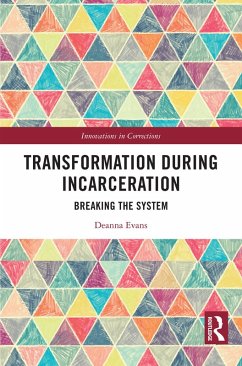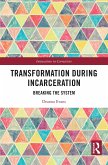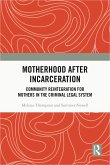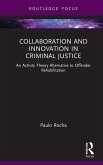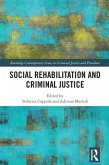What innovations are possible with a change of perspective and focus on self-identified stories of transformation where transformation is redefined from the lens of self-efficacy and power to change one's world? Where we rebuild the lexicon from a humanizing philosophy, and our starting point shifts to the inherent goodness of humanity and the potential to evolve beyond limiting narratives and social constructs? Where we empower those with the most to lose through our feeble attempts as outsiders to reform prison paradigms? Where religious narratives of human depravity give way to trauma-informed praxis and neuroscience? Where community and relational equity replace solitary confinement and isolation? Using an indigenous research methodology analyzing memoirs of formerly incarcerated people, the book contextualizes and identifies the role of community and shared emotional connection among incarcerated people.
This book is essential for scholars, practitioners, and students concerned with the transformative journey among the incarcerated population and for anyone engaged in higher education in prison or interested in constructive change of the prison system.
Dieser Download kann aus rechtlichen Gründen nur mit Rechnungsadresse in A, B, BG, CY, CZ, D, DK, EW, E, FIN, F, GR, HR, H, IRL, I, LT, L, LR, M, NL, PL, P, R, S, SLO, SK ausgeliefert werden.
- Tanya Erzen, author of God in Captivity: The Rise of Faith-Based Prisons in an Age of Mass Incarceration
"This text provides a set of lenses with which to better view and analyze the work we do in the higher education in prison space. Evans' analysis is thoughtful and deliberate, constructing a pathway toward more holistic program considerations."
- Dr. Erin S. Corbett, Second Chance Educational Alliance, Quinnipiac University

